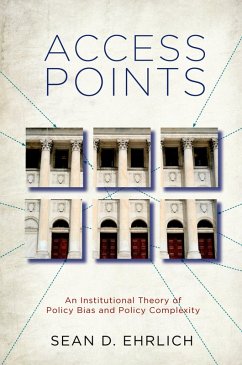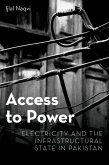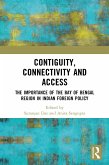Access Points develops a new theory--Access Point Theory--about how democratic institutions influence policy outcomes, arguing that the more points of access institutions provide to interest groups, the cheaper lobbying is, and the more lobbying will occur. This creates more complex and biased policy as policymakers insert specific provisions that benefit lobbyists. Access Point Theory explains bias and complexity in trade and tax policy and environmental and banking regulations around the world, and the book provides scholars with a powerful tool to explain how political institutions matter and why countries implement the policies they do.
Dieser Download kann aus rechtlichen Gründen nur mit Rechnungsadresse in A, B, BG, CY, CZ, D, DK, EW, E, FIN, F, GR, HR, H, IRL, I, LT, L, LR, M, NL, PL, P, R, S, SLO, SK ausgeliefert werden.









